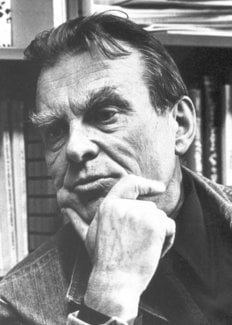Czesław Miłosz
Biographical

Czesław Miłosz was born June 30, 1911 in Seteiniai, Lithuania, as a son of Aleksander Miłosz, a civil engineer, and Weronika, née Kunat. He made his high-school and university studies in Wilno, then belonging to Poland. A co-founder of a literary group “Zagary”, he made his literary début in 1930, published in the 1930s two volumes of poetry and worked for the Polish Radio. Most of the war time he spent in Warsaw working there for the underground presses.
In the diplomatic service of the People’s Poland since 1945, he broke with the government in 1951 and settled in France where he wrote several books in prose. In 1953 he received Prix Littéraire Européen.
In 1960, invited by the University of California, he moved to Berkeley where he has been, since 1961, Professor of Slavic Languages and Literatures.
Presented with an award for poetry translations from the Polish P.E.N. Club in Warsaw in 1974; a Guggenheim Fellow for poetry 1976; received a honorary degree Doctor of Letters from the University of Michigan, Ann Arbor, in 1977; won the Neustadt International Prize for Literature in 1978; received the “Berkeley Citation” (an equivalent of a honorary Ph.D.) in 1978; nominated by the Academic Senate a “Research Lecturer” of 1979/1980.
This autobiography/biography was written at the time of the award and first published in the book series Les Prix Nobel. It was later edited and republished in Nobel Lectures. To cite this document, always state the source as shown above.
Czesław Miłosz died on August 14, 2004.
Nobel Prizes and laureates
Six prizes were awarded for achievements that have conferred the greatest benefit to humankind. The 12 laureates' work and discoveries range from proteins' structures and machine learning to fighting for a world free of nuclear weapons.
See them all presented here.
